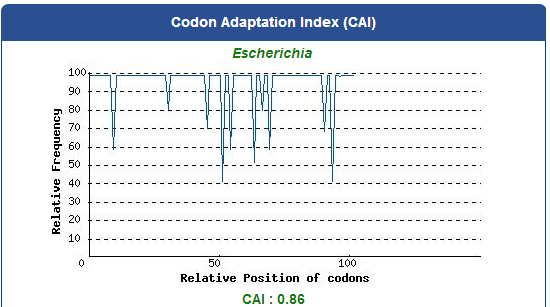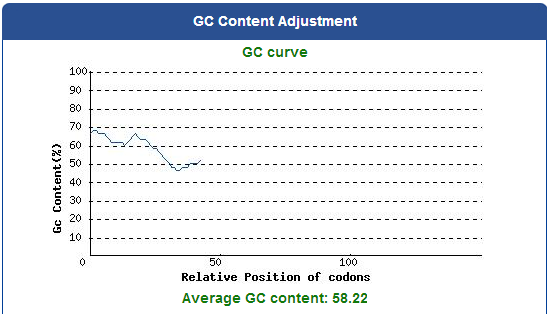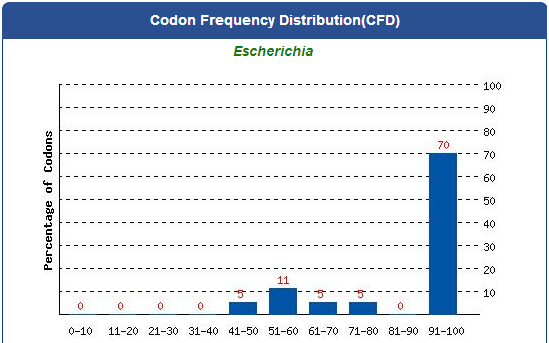Team:NCTU Formosa/results
From 2014.igem.org
| Line 6: | Line 6: | ||
<div class="li"><div class="card"> | <div class="li"><div class="card"> | ||
| + | <p> Our experiment can roughly divided into two categories. </p> | ||
| + | <p>1. About ''E.coli.'' Aspects:gene recombination and protein expression. </p> | ||
| + | <p>2. About Insect Aspects:PBAN effect testing、insects' habbit testing and our device testing </p> | ||
| + | ===''E.coli.'' Aspects=== | ||
| + | ====DNA Synthsis of 9 different kinds of PBAN==== | ||
| + | <p> For our project (aim for capturing harmful insects) this year, we first found 9 different kinds of PBAN peptide of common agricultural harmful insects in the world from many reference papers. Then, we used these peptides to surf the NCBI and found the DNA sequence from the certain insect. ( EX:PBAN Spodoptera litura:http://www.ncbi.nlm.nih.gov/protein/AAK84160.1 ) Finally, we modified every codon on the DNA sequence and designed the DNA sequence for our ''E.coli.'' to express a certain PBAN. </p> | ||
| + | <p> DNA Modification Process: </p> | ||
| + | <p>1. Avoid the rare codon of ''E.coli.'', and choosing high frequency codons. <br> | ||
| + | ( Frequence Table Tool:http://www.genscript.com/cgi-bin/tools/codon_freq_table )</p> | ||
| + | <p>2. Don't choose the same codon to modify our designed gene many times, or our ''E.coli.'' will not have enough nucleotides to replicate it. </p> | ||
| + | <p>3. Avoid the start codon ATG existing in the front of our DNA sequence. </p> | ||
| + | <p>4. Use Rare Codon Analysis Tool ( http://www.genscript.com/cgi-bin/tools/rare_codon_analysis ) to inspect if there is any problem to express our gene <br> | ||
| + | for ''E.coli''.</p> | ||
| + | <p> Take PBAN Spodoptera litura for example:</p> | ||
| + | [[File:PBAN_Spodoptera_litura_CAI_Value.png|left|400px|fig.2-1-1 The distribution of codon usage frequency along the length of your CDS to be expressed in your target host organism. Possibility of high protein expression level is correlated to the value of CAI - a CAI of 1.0 is considered to be ideal while a CAI of >0.8 is rated as good for expression in the desired expression organism. GenScript's OptimumGeneTM codon optimization tool can typically improve your sequence to reach a CAI of higher than 0.8 thus better chance of high level protein expression.]] | ||
| - | + | [[File:Average_GC_content.png|left|400px|fig.2-1-2 The ideal percentage range of GC content is between 30% to 70%. Any peaks outside of this range will adversely affect transcriptional and translational efficiency.]] | |
| + | [[File:Codon_Frequency_Distribution.png|left|400px|fig.2-1-3 The percentage distribution of codons in computed codon quality groups. The value of 100 is set for the codon with the highest usage frequency for a given amino acid in the desired expression organism. Codons with values lower than 30 are likely to hamper the expression efficiency.]] | ||
| + | <p>5. Add iGEM standard sequence in front of and at the back of our modified DNA sequence.</p> | ||
| + | <p>6. Let the gene synthesis company synthesize our modified DNA sequence.</p> | ||
| + | ====PCR for 9 different kinds of PBAN==== | ||
| - | ==== | + | ====SDS Protein Electrophoresis of 9 different kinds of PBAN==== |
| + | |||
| + | ====BFP Fluorescence / OD 600 Bacteria Growth Testing==== | ||
</div></div> | </div></div> | ||
| Line 16: | Line 37: | ||
<div class="li"><div class="card"> | <div class="li"><div class="card"> | ||
| - | === | + | ===Insect Aspects=== |
| - | + | ====Behavior of Target Insects Eating Our PBAN==== | |
| - | |||
| - | |||
| + | ====Effect Testing of Our PBAN==== | ||
| - | |||
| + | ====Testing of Spodoptera Litura Hobby for Temperature and Light ==== | ||
| - | |||
| + | ====Magic Power of Our Pyramidal Device==== | ||
</div></div> | </div></div> | ||
Revision as of 16:43, 5 October 2014
Our experiment can roughly divided into two categories.
1. About E.coli. Aspects:gene recombination and protein expression.
2. About Insect Aspects:PBAN effect testing、insects' habbit testing and our device testing
Contents |
E.coli. Aspects
DNA Synthsis of 9 different kinds of PBAN
For our project (aim for capturing harmful insects) this year, we first found 9 different kinds of PBAN peptide of common agricultural harmful insects in the world from many reference papers. Then, we used these peptides to surf the NCBI and found the DNA sequence from the certain insect. ( EX:PBAN Spodoptera litura:http://www.ncbi.nlm.nih.gov/protein/AAK84160.1 ) Finally, we modified every codon on the DNA sequence and designed the DNA sequence for our E.coli. to express a certain PBAN.
DNA Modification Process:
1. Avoid the rare codon of E.coli., and choosing high frequency codons.
( Frequence Table Tool:http://www.genscript.com/cgi-bin/tools/codon_freq_table )
2. Don't choose the same codon to modify our designed gene many times, or our E.coli. will not have enough nucleotides to replicate it.
3. Avoid the start codon ATG existing in the front of our DNA sequence.
4. Use Rare Codon Analysis Tool ( http://www.genscript.com/cgi-bin/tools/rare_codon_analysis ) to inspect if there is any problem to express our gene
for E.coli.
Take PBAN Spodoptera litura for example:
5. Add iGEM standard sequence in front of and at the back of our modified DNA sequence.
6. Let the gene synthesis company synthesize our modified DNA sequence.
PCR for 9 different kinds of PBAN
SDS Protein Electrophoresis of 9 different kinds of PBAN
BFP Fluorescence / OD 600 Bacteria Growth Testing
Insect Aspects
Behavior of Target Insects Eating Our PBAN
Effect Testing of Our PBAN
Testing of Spodoptera Litura Hobby for Temperature and Light
Magic Power of Our Pyramidal Device
 "
"


